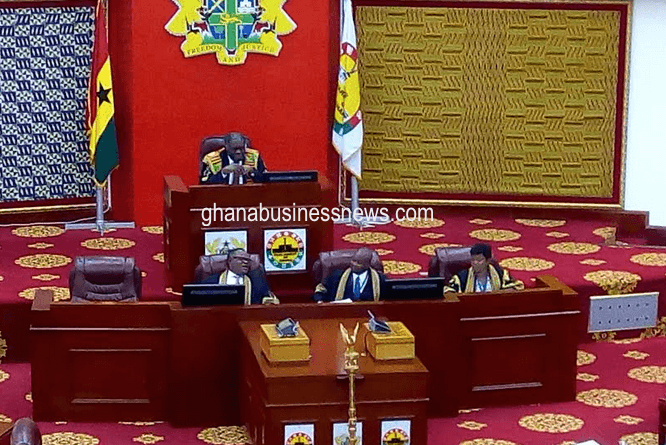Parliament queries universities on school fees penalties
 Parliament has questioned the basis for which public universities in Ghana are levying penalties on late payments of school fees by brilliant but needy students.
Parliament has questioned the basis for which public universities in Ghana are levying penalties on late payments of school fees by brilliant but needy students.
They said the practice was unconstitutional, and against the laws establishing the universities.
“Mr Speaker, this unsupportive behaviour is not only in breach of constitutional underpinning of making education affordable to all, but sins also against the various Acts which established these various public tertiary institutions and their various statutes,” Mr Alfred Okoe Vanderpuije, Member of Parliament (MP) for Ablekuma South, said in a statement in Parliament on Thursday.
Contributions from members of both sides of the House minced no words in condemning the practice, for which some universities were charging from GH¢500 to GH¢1,000, and some GH¢50 for a semester late payments of school fees.
Comparing the practice to commercial trade where penalties are levied for late payments under a contract, Mr Vanderpuije contrasted that with school fees payment saying ” Mr Speaker, if this commercial trade is transferred to our educational system, it will be detrimental and suicidal for the poor in seeking affordable education.”
The Ablekuma South MP reported that some ordeals in the forms of withholding students’ semester results, preventing them from attending lectures, writing quizzes, and some are even made to defer their programmes without their concurrence, with further humiliations, inhumane and degrading comments from school authorities.
He made reference to a Supreme Court ruling “in the unreported case of Federation of Youth Association of Ghana (FDYAG) v Public Universities of Ghana and Ors, Writ No J1/5.200927/07/2010” where it was ruled among others that “failure of government allocations in the face of economic decline and structural economic adjustment programmes has led to reduction in support for public universities.
The court noted “increasing student enrollment without the corresponding expansion in facilities has created huge complex problems that called for an improvement in resources and administration which will greatly improve university education and as a matter of course enhance development efforts.”
Mr Vanderpuije noted the inability of all governments in Ghana, since 1992, to realise free education under Article 25 of the 1992 Constitution, and explained that “it is for this reason that there is the need to regulate the payment of charges for late school fees and where possible low economic people must not suffer for successive governments’ inability to provide the ends on education.”
He suggested that the practice “must be abrogated” on the grounds that “there is no single regulation that warranted the levying of those charges perpetuated at the faculty levels.”
The Ablekuma South Lawmaker warned that lack of proper regulation of late payment of fees “will crystallize into a measure beyond not just depriving the poor the full realisation of affordable education, but will promote and deepen the poverty cycle in the country.”
Mr Alex Kofi Agyekum, Chairman of the Committee on Youth, Sports and Culture expressed concern about the public universities saddling students with what he called “unnecessary fees,” and with their cut off points pushing students into private universities, where exorbitant fees were charged.
This he said was discouraging students from striving for excellent grades as those with the wherewithal feel it not really important to study hard because they could easily gain admission into them.
Other contributions noted with worry that some students in second cycle institutions were being asked to motivate their teachers, which added to the cost of fees.
Source: GNA
